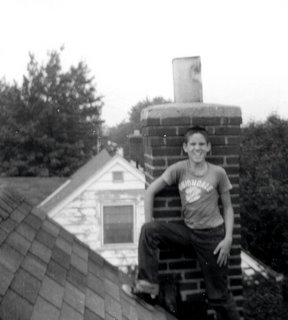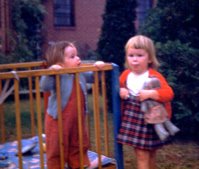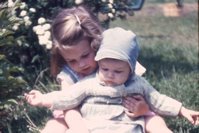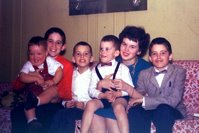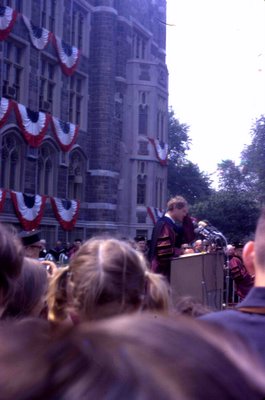I have had trouble answering this question since I was 18 in 1963. I come from a family that has been Catholic as far back as our known family history. I had an academically strong Catholic school education for 16 years. I was educated by Jesuits at Fordham University; Jesuits are the intellectual elite of Catholicism. I was an atheist from 18 to 28. Fordham was in the existential, God-is-dead phase of the late 60s, so I never even looked for spiritual counseling.
I became a believer at 27, when my first daughter was born. This miracle could not be the result of a chance collision of molecules. I was in and out of many Catholic Churches for 20 years. We baptized our 4 kids Catholic, but sent them to religious ed only sporadically. Two never received penance, one Holy Communion; none were confirmed Our youngest is a pagan for all practical purposes. We were very bad Catholics even when we were going to Catholic Church
Both my parents and I had always been Commonweal Catholics; Commonweal is the Catholic Nation. Commonweal Catholics are widely viewed as heretics and traitors, relentlessly critical of the church, cafeteria Catholics who pick and choose what to believe.. My enlighted parents and I loathed the church's refusal to ordain women, married men, or known gays. . The church's virulent condemnation of gays is morally wrong.
It seems easier for an ex-Catholic to be nothing, then to step into a Protestant Church, but for ten years I went church shopping--Methodist, Lutheran, Episcopalian, Quaker. I will always consider myself a Quaker at heart. We loved Orono Friends Meeting in Maine; it was full of seekers with young families like ours. When we moved to Long Island, we tried Westbury Friends. The meeting house is 200 years old; must of its members are lifetime Quakers.
We had attended an Episcopal Church in Chelsea in 1979 and 1980, but went back to being Catholic briefly in Maine. Ten years ago I started sttending the Epsicopal Church. It seems ideal for a Catholic--no pope, same service, better music, divorce does not bar you from the Eucharist, women, gay, and married priests. Now the US presiding bishop is a woman, and the US Church has ordained a gay bishop. . I was formally received into the Episcopal Church in 2003. For years we shopped widely for the right Episcopal Church. In our area they are likely to be pathetically small or entirely African American or located in offensively rich communities. and have found one in the next town. My English Anglican husband sang in English Cathedral choirs; only two nearby richer churches are tolerable musically. The African American curches are magnificently friendly with a strong social mission, but their musical tradition is completely alien to and Englishman. We have compromised on the church in the less rich town, where I went to high school.
Sometimes I still go to Catholic masses. I still read Commonweal. The Episcopal Church seems a bit too austere for me; I miss the quasi-superstitions of the Catholic Church and the devotion to Marythat lets women into the Godhead. I still remember how thrilled I was to crown Mary as Queen of the May in third grade. I wear a miraculous medal that belonged to my grandma, then my father. People usually notice it, and I tell them it is Mother God. I prayed to Mary when I considered myself an atheist. I have always prayed the Rosary; it is the way I meditate. The rosary has gotten me through every plane trip. Although the Episcopal Church has woman priests and bishops, their God seems very masculine.
I still sometimes walk into a strange Catholic Church and go to confession. My luck has been good; I have found gentle, compassionate men. In 1973, I had a hideous priest, who tried to figure out how many masses I had missed in ten years. I believe he came up with 600 mortal sins, each of which could send me directly to tell.
I love Catholic funerals and believe in an afterlife. I loved learning the lives of the saints in school. What an incredible bunch of weirdos, rebels, heroes, crusaders, and eccentrics. I have always prayed to the departed as well as saints and God proper. I conceive of God as Jesus, Mother, and Holy Spirt. I do not accept a patriarchal God.
I have always believed in evolution; I never have read the Bible literally. I have always despised fundamentalist Christians, who don't regard Catholics as Christians anyway.
